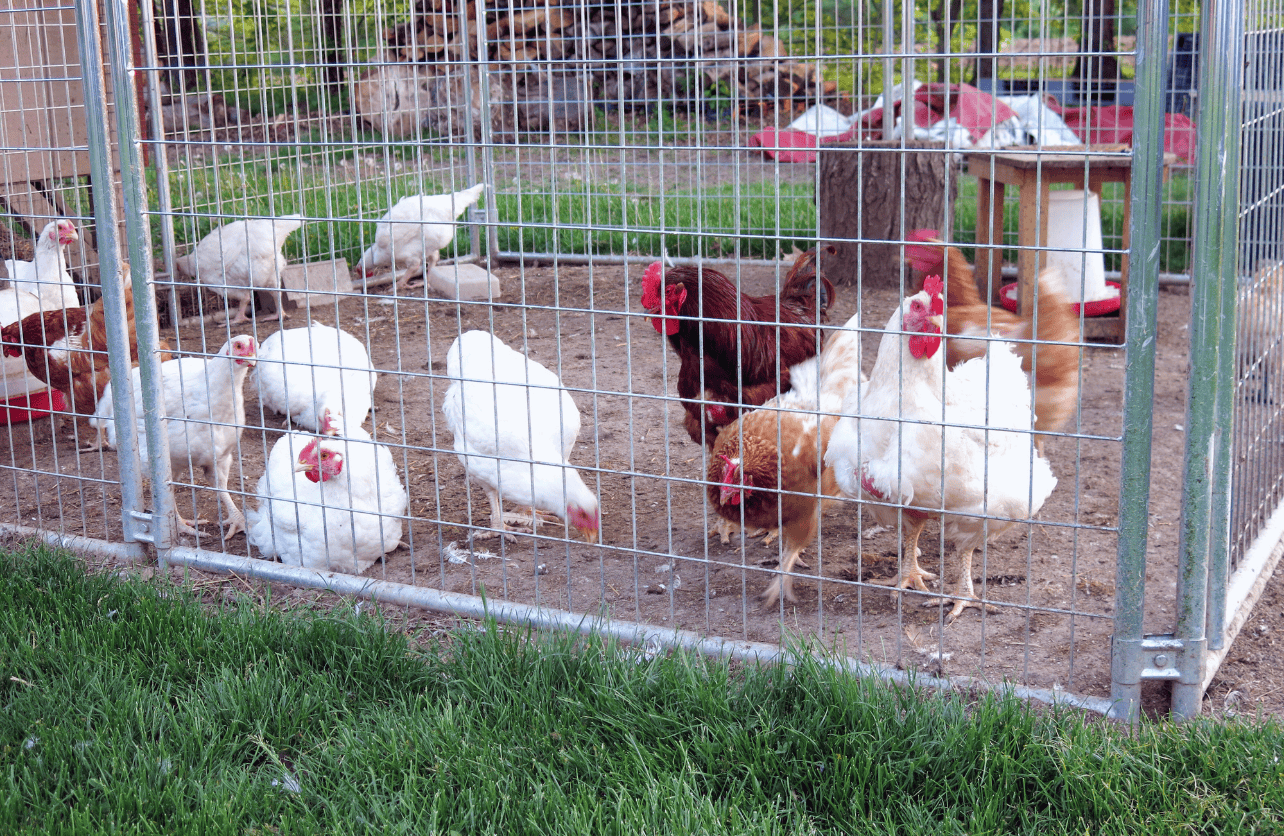How to Predator-Proof Your Chicken Coop

Protecting your chickens from predators is one of the most important aspects of keeping a happy, healthy flock. From raccoons and foxes to stray dogs and hawks, predators are a constant threat to backyard chickens. The good news is that with a few strategic measures, you can secure your coop and give your birds the safety they deserve. Here’s how to predator-proof your chicken coop using latches, wire mesh, and other protective tools.
Understand Common Chicken Predators
Different predators pose different risks depending on where you live.
- Ground Predators: Raccoons, foxes, coyotes, and stray dogs are the most common threats to backyard chickens. These animals are clever and persistent, often targeting weak spots in your coop.
- Aerial Predators: Hawks and owls are known for swooping in and snatching chickens during the day or night.
- Burrowing Predators: Animals like rats, weasels, and even snakes may dig under the coop to access your flock.
Identifying the risks in your area helps you tailor your defenses for maximum effectiveness.
Reinforce Your Coop Structure
Use Durable Wire Mesh
Replace chicken wire with ½-inch hardware cloth, which is stronger and more secure. Chicken wire is designed to keep chickens in, not predators out, and many animals can chew through it. Use hardware cloth on all windows, vents, and other openings to block entry points.
Tip: Bury the hardware cloth at least 12 inches deep around the perimeter of your coop to prevent burrowing predators from digging under the fence.
Upgrade Doors and Latches
Predators like raccoons are surprisingly skilled at opening simple latches. Install spring-loaded or locking latches on all coop doors, as these are much harder for animals to manipulate.
Pro Tip: Consider adding an automatic coop door that locks securely at night to keep your flock safe while you sleep.
Fortify the Coop Perimeter
Build a Predator Apron
A predator apron is a layer of wire mesh that extends out horizontally from the base of your coop. This prevents animals from digging underneath.
How to Install:
- Attach the hardware cloth to the bottom edge of the coop.
- Lay it flat on the ground, extending 12–18 inches outward.
- Secure it with landscape staples or bury it under a thin layer of soil.
Install Electric Fencing
For areas with heavy predator activity, electric fencing is a reliable option. A small jolt will deter most predators without harming them, keeping your chickens safe without unnecessary conflict.
Add Motion Deterrents
Predators prefer to attack under cover of darkness or when the area is quiet. Motion-activated lights, sprinklers, or sound alarms can scare them away before they get close to your coop.
Pro Tip: Rotate deterrent placements regularly to prevent predators from learning their patterns.
Secure the Run Area
Chickens love to roam, but an unsecured run can leave them vulnerable. Enclose your run with hardware cloth and add a covered roof to keep aerial predators at bay. For larger runs, consider reinforcing the roof with sturdy netting or additional wire mesh.
Regular Maintenance is Key
Even the best predator-proofing measures require upkeep. Check your coop and run regularly for:
- Holes or weak spots in the mesh.
- Signs of digging near the perimeter.
- Worn or broken latches on doors and windows.
Making timely repairs will keep your defenses strong and effective.
Invest in Security Accessories
There are plenty of accessories designed to improve coop security, including:
- Automatic coop doors: These ensure your chickens are locked in safely every evening.
- Reinforced wire mesh: Prevents chewing and digging from predators.
- Solar-powered lights: Eco-friendly options that deter nighttime threats.
- Cameras: For monitoring your coop remotely and identifying persistent predators.
Final Thoughts
Predator-proofing your chicken coop is essential for keeping your flock safe and happy. By reinforcing the structure, fortifying the perimeter, and adding deterrents, you can create a secure environment that protects your chickens from harm. Regular maintenance and smart accessory choices will go a long way in ensuring the safety of your coop for years to come.
Your Pet’s Best Interest, Always
At Pet Institute, we take pet care seriously. We're dedicated to transparency, impartiality, and the well-being of your pets in every article, review, and recommendation we provide. Our unwavering commitment to these principles ensures that you, our valued reader, always receive reliable and unbiased information. Let us be your trusted guide in the world of pet care and companionship.